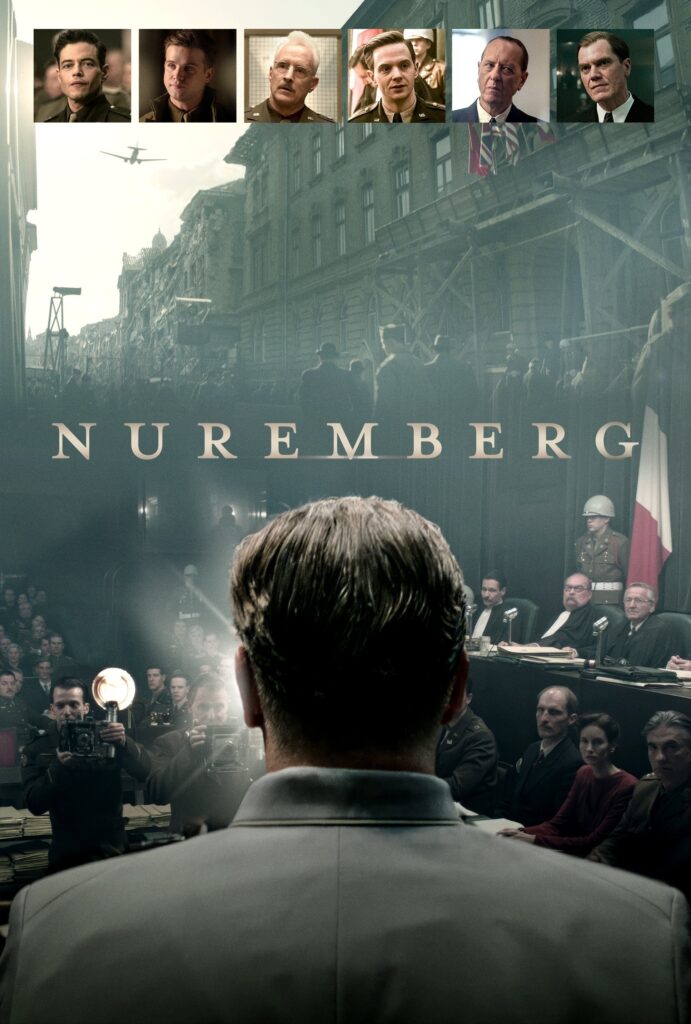It’s 1945 just after Adolf Hitler’s suicide in Berlin and the Allies have made their way into Germany. While the 36th Infantry Division of the US Army facilitates the march of German citizens back to their hometowns, a car appears and out pops Hermann Göring, now the highest-ranking leader of the remaining Nazis. Göring elected to surrender to the Americans over the Soviets. The ongoing sentiment at the time was to swiftly eliminate Nazis on the spot, but instead Göring served as the key defendant in The Nuremberg Trials.
Adapting Jack El-Hai’s 2013 novel The Nazi and the Psychiatrist, screenwriter and director James Vanderbilt (Zodiac, Truth), has made Nuremberg a fascinating and urgently important story that has not been told on film before. So is this yet another courtroom drama? Yes and no. There is plenty of drama in this courtroom, indeed, but it is the questions at its core and the central cat-and-mouse game between former Reichsmarschall and Hitler’s No. 2 Hermann Göring (Russell Crowe) and Army psychologist Lt. Col. Douglas Kelley (Rami Malek) that grab the spotlight and let us into the Nazi psyche like never before. These two Oscar-winning actors go toe to toe in a thrilling chess match between a magician and psychiatrist (Kelley loved magic) and a narcissist who thought he could outwit an entire international court. But in Vanderbilt’s hands this isn’t the whole story in an unusual scenario that doesn’t rely on a three-act structure but manages to paint a bigger picture focusing on just a few participants in this monumental event that shaped a new international order of law.
ADA-mandated Audio Descriptive (AD) and Closed Caption (CC) devices available for the visually and hearing-impaired. Inquire at the concession stand.

